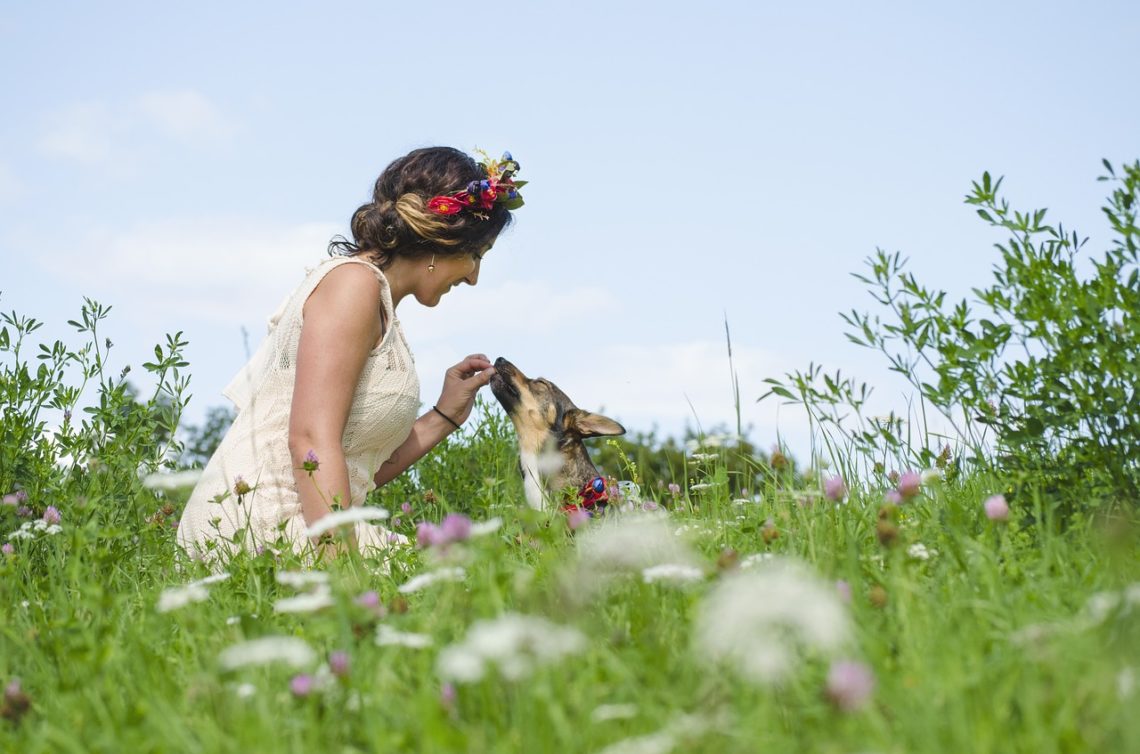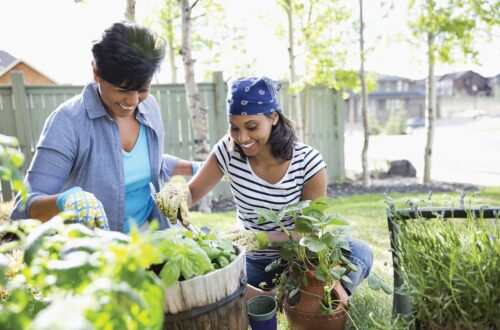For many of us, pets are important members of our families – they sure are in our homes! Herbs can be useful for our very best furry (and even feathered!) friends, big or small. Here are a few examples and how to use them.
Poultices are prepared from a moist mass of dried or chopped fresh herbs. They are applied directly to the skin to relieve in ammation, infection and stings. A poultice promotes healing by drawing out toxins, infections or foreign items embedded in the skin. To make a poultice: moisten herbs with warm water to form a thick paste; place on a sterile gauze pad and apply directly to a ected area. Try to keep the poultice in place for at least an hour. Poultices may be used on dogs, cats, horses and other pets. Theses herbs can make effective poultices: chamomile, yarrow, comfrey, plantain or garlic.
Chamomile, an apple scented herb common in teas for people, makes a great infusion to soothe a pet’s irritated skin. Simply make an infusion/tea of 1 T of dried herb to 1 cup of boiling water, steep for at least 15 minutes, strain and cool, pour it into a spray bottle and apply to irritated skin as needed. Kept refrigerated, it should last about a week.
Yarrow is an easy to grow herb which makes a great poultice or soak for cuts and scrapes. Plus, its pungent scent discourages licking. It can also be added to the chamomile spray above for itchy or irritated skin. Powdered yarrow is a great herb to include in your rst aid kit for hikes and walks with your pet, as it can stop bleeding.
Rosemary is a versatile herb with both antioxidant and insect repelling qualities. It can be used in poultices or in a wash to soothe abrasions and promote speedy healing. Make an infusion of 2 tsp rose- mary leaves in 1 cup water. Pour boiling water over herbs, steep 10-15 minutes, strain and use.
Catnip & cats: For 80% of cats, the smell of catnip acts as a stimulant. Catnip toys provide enjoyment and exercise for kitty and entertainment for you. For people, it can be a relaxing herbal tea, try it before heading to bed. Internal use for cats (with proper guidance) can relieve diarrhea and gas.
Cautions about herbs & pets: Most herbs are safe when used appropriately. Pregnant animals, especially cats, should not be given herbs internally. Young animals may also have negative reactions to herbs. Check with your veterinarian before using herbs internally with your pets.
Herbs can be beneficial and safe for our pets, just as they are for us. But if a pet has a serious wound or a condition that is prolonged, check with a veterinarian.
Erin Harwood & Eloyce O’Connor are co-owners of Garden Delights Herb Farm in Brush Prairie, WA, where they grow a variety of herbs for culinary, medicinal, pet, home and garden use. They also offer classes.
For more info: http://www.gardendelightsfarm.com/






